Dominican Republic
This is where our iconic bars with the sailing ship come from. And why is there a sailing ship on the packaging? Because the cocoa beans are sailed all the way to Amsterdam at wind power for 4-6 months on board the legendary Tres Hombres. In Amsterdam, by the way, the cocoa beans are further processed on solar energy. Cocoa does not grow in Europe, so transport by container ship always has a real CO2 footprint. Because of the location of the Dominican Republic and the heroes of the Tres Hombres crew, we can produce the most sustainable chocolate, emission free.
Every bite increases the impact: shop the Dom.Rep. bars here.
As you can see, each region has its own needs and circumstances. And in every region, in addition to the impact on nature and the climate, we also take care of the people and that they earn a living. But what applies in all cocoa-growing regions is that preserving the rainforest and combating deforestation must be given the highest priority.
Chocolatemakers makes strong chocolate from bean to bar 100% in-house
What started as a boyhood dream for Enver and Rodney of Chocolatemakers, making chocolate themselves, grew into the opening of the world's most sustainable chocolate factory. The founders expect to produce 200,000 kilos of chocolate in the factory, which will be open to the public from 5 October. Large quantities of chocolate bars will leave the factory that many thousands of fans in the Netherlands, Belgium and Germany consume every day.
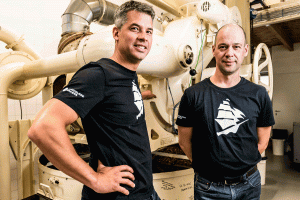
With this, we are realising a long-cherished dream. From our very beginning in 2011, we wanted to show people how chocolate is made. And not the mass-produced chocolate from mega-factories, but the artisanal process where quality rather than efficiency is key. Where the focus is on the bean, its origin and its fantastic flavours. We bring the human touch back into the process and you can taste that,' say Rodney Nikkels (48) & Enver Loke (45).
Sjakie and the...
Sustainable chocolate factory, of course. But that's not so natural. Where can you find a chocolate factory where chocolate is made entirely in-house, from bean to bar? Only when you have mastered all the steps of chocolate making can you call yourself a true chocolate maker.
Chocolatemakers. Where at present 60-70,000 tonnes (60-70,000 kilos) of chocolate are made from beans to bars and couvertures in-house, the two chocolate makers expect to produce 200 tonnes of chocolate in the near future, and even 400 tonnes in the long run.
The Dutch chocolate brand shows that the entire cocoa chain, from farmer to consumer, can be transparent, fair and sustainable. Rodney explains: 'That means that we innovate on all fronts . We look beyond fair trade or organic: environmentally friendly transport, a zero-waste production process and nature conservation are also part of it. We believe in a holistic approach. The farmers' cooperative from Peru with whom we opened a chocolate factory in Peru in May this year, are also shareholders in the new factory in Amsterdam. In 2014 we were already named Amsterdam 's most sustainable SME and now five years later we are proud to open our factory, with a fully transparent roof of solar panels, so that we can provide for our own energy needs.'
-
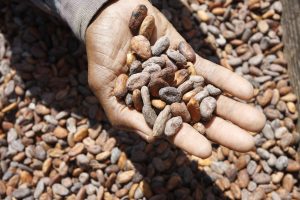
-
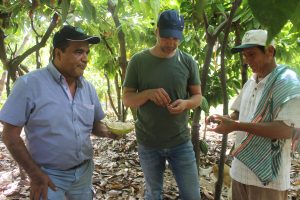
-
From left to right: Santiago Paz Lopez (Norandino), Rodney Nikkels (Chocolatemakers) & Don Crescencio Chamba (cocoa farmer)
Visitable chocolate factory
In recent years, Rodney and Enver have built their own sustainable chocolate factory in Amsterdam-West, in the middle of the largest cacao port in the world. From the end of this year, everyone is welcome in the Chocolatemakers factory to see (and taste) how the chocolate is made.
This unique tour can be booked via the website www.chocolatemakers.nl.
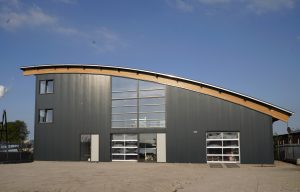 The chocolate factory works exclusively with 'single origin beans', which are bought directly from farmers. The sailing ship that brings the cocoa beans from the Dominican Republic can moor right in front of the door of the new chocolate factory. And there is room for the cyclists
The chocolate factory works exclusively with 'single origin beans', which are bought directly from farmers. The sailing ship that brings the cocoa beans from the Dominican Republic can moor right in front of the door of the new chocolate factory. And there is room for the cyclists
of the bi-annual Schokofahrt to distribute the chocolate on bicycles to Germany.
About Chocolatemakers
Chocolatemakers makes the chocolate from bean to bar in their own factory in Amsterdam. The chocolate is made with 'single origin' beans purchased directly from cocoa farmers. Three origins, each with its own story:
- In Peru, Chocolatemakers works on projects to improve soil quality and last year they built a modern chocolate factory together with the cocoa farmers. For the first time in history, this allows the farmers to become chocolate makers and thus generate more income.
- From the Dominican Republic, the bars are transported by sailing ship entirely on wind power to the Netherlands, where they are processed into strong chocolate.
- In Congo, cocoa provides an income for local people so that they do not threaten the habitat of the mountain gorillas in Virunga National Park.
Large quantities of chocolate bars leave the factory and are enjoyed daily by many fans in the Netherlands, Belgium and Germany. The products are available at Ekoplaza, Marqt, Holland & Barrett and other (organic) shops throughout the Netherlands or via the webshop www.chocolatemakers.nl.
(more...)
Schokofahrt#4
Around 100 German and a few Austrian cyclists will come to our factory in Amsterdam-North with their cargo bikes from different parts of Germany to collect chocolate and cycle it back to Germany on 6 October. The idea of the Schokofahrt is to transport the organic chocolate, transported by the sailing ship Tres Hombres, to Germany completely free of emissions. They want to show that transport by bike is possible and at the same time connects people.
This is the fourth time the Schokofahrt has come to Chocolatemakers comes. As more and more people recognize the need for sustainable transportation, more and more cyclists and stores are joining this initiative.
Katelijne Boerma, Amsterdam's cycling mayor, welcomes the cyclists. I think this is a great initiative. It's great that inter-city cycling connections are being created by pioneering companies like Chocolatemakers. If you look at the crowds in our city, and the fact that cargo bikes offer a solution to make the city cleaner, more social, more accessible and safer for everyone, it's great to see that German cities are following suit and even making the connection.
This time, in addition to 12,000 Tres Hombres bars, the Schokofahrt participantswill also take the new Tres Hombres minis and the Choco Sails chocolate. The cocoa beans of this chocolate have been sailed from the Dominican Republic to the Netherlands by the sailing ship Tres Hombres and brought to the factory by carrier cycle. Chocolatemakers made delicious chocolate from these beans and the Schokofahrt transported them to Germany and Austria, so that this delicious chocolate is also available there completely free of emissions.
Read more on the Schokofahrt website, or on the Schokofahrt Facebook page.
Download the press release here
This is where the cyclists come from, and where the chocolate goes to...
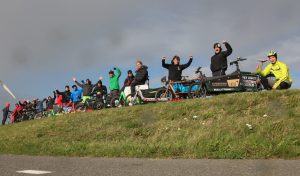 This weekend they are at our door again!
This weekend they are at our door again!
About 100 Germans and a few Austrians cycle with their cargo bikes from different parts of Germany to Chocolatemakers to pick up our organic Tres Hombres chocolate and cycle it back to Germany. The idea of the #Schokofahrt is to transport the organic chocolate to Germany completely free of emissions. The cocoa beans were shipped from the Dominican Republic to the Netherlands on the sailing ship Tres Hombres and transported to the factory on a cargo bicycle. We have made delicious chocolate from them and the Germans bring them home by carrier cycle.
More info on the Schokofahrt website, or on their Facebook page.
This is where the cyclists come from, and where the chocolate goes to...

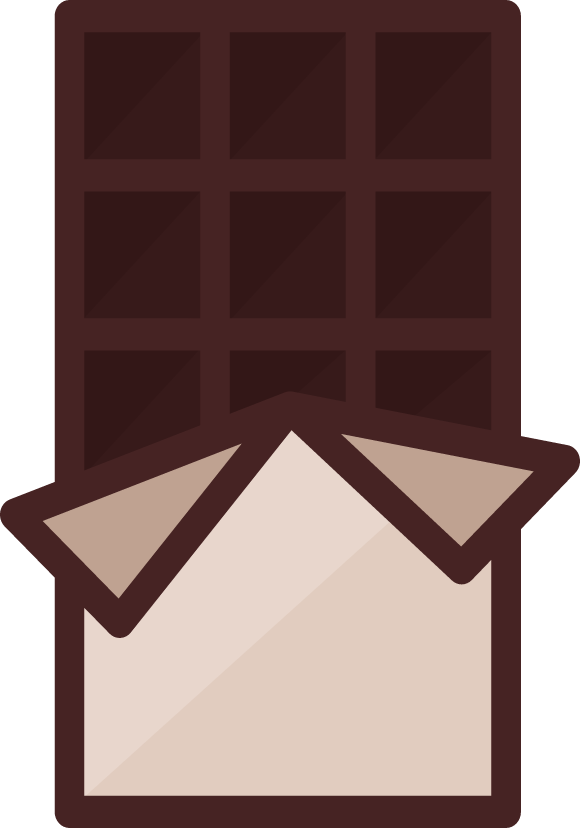
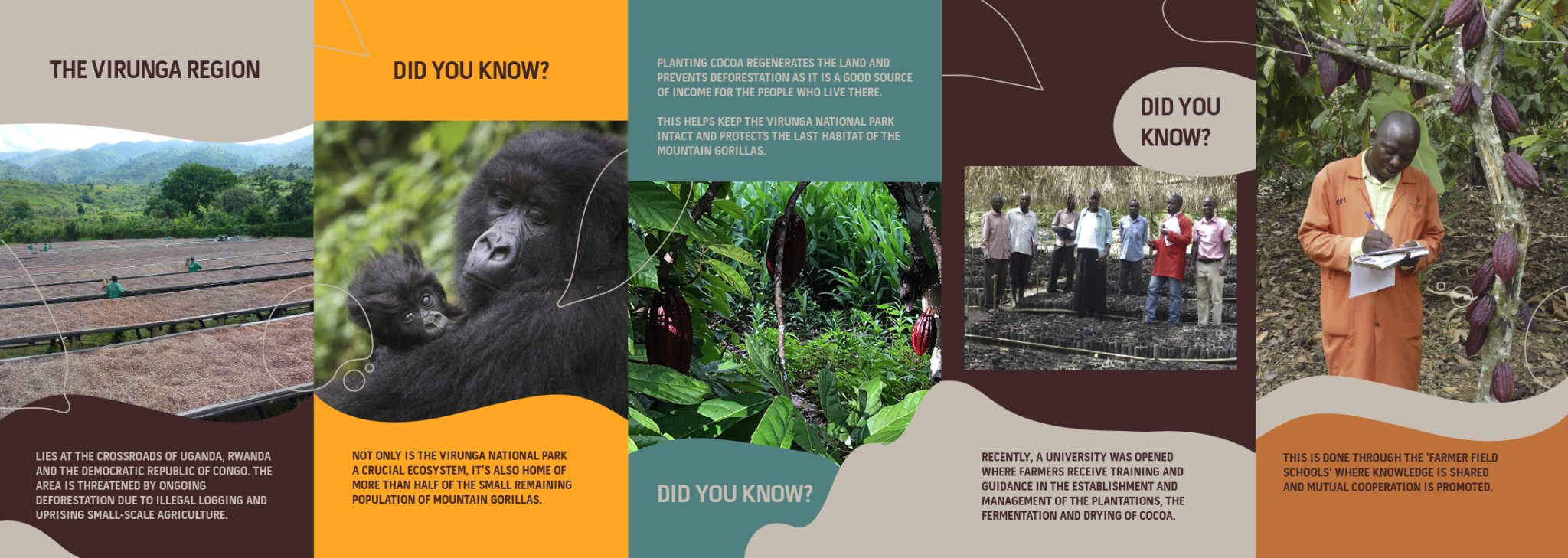
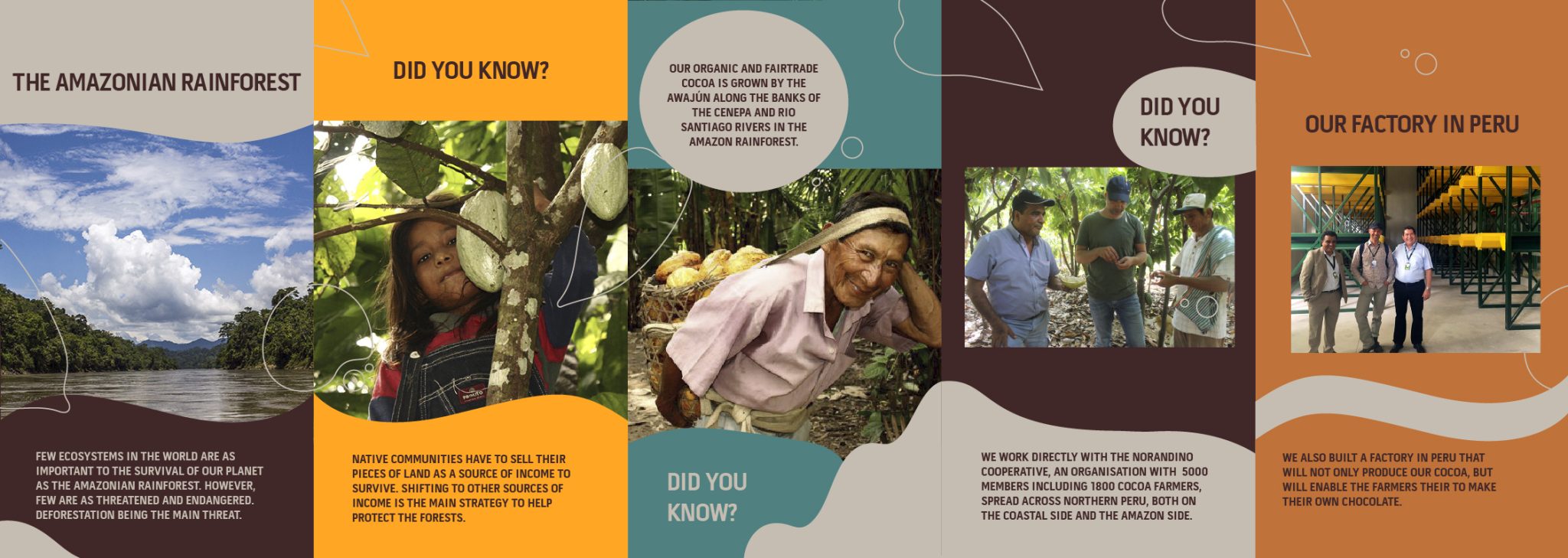
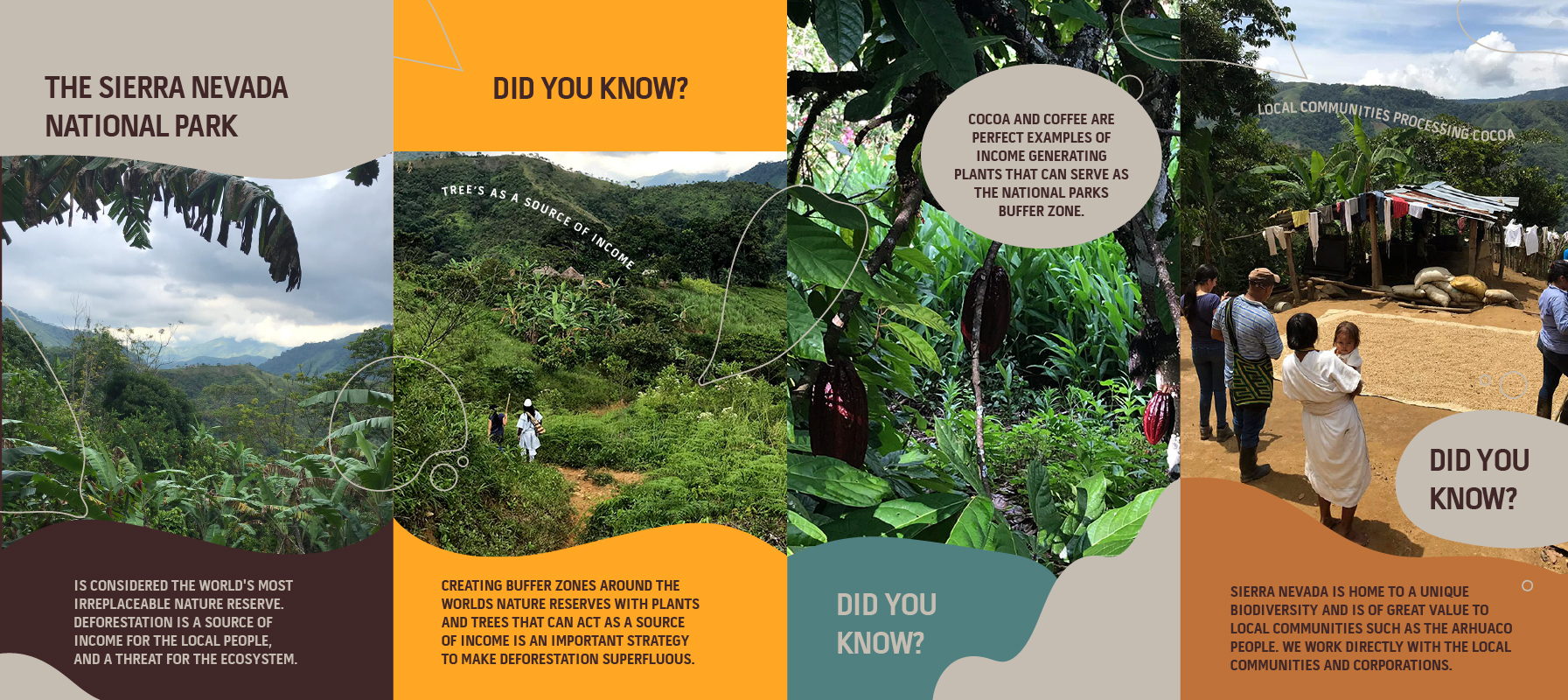
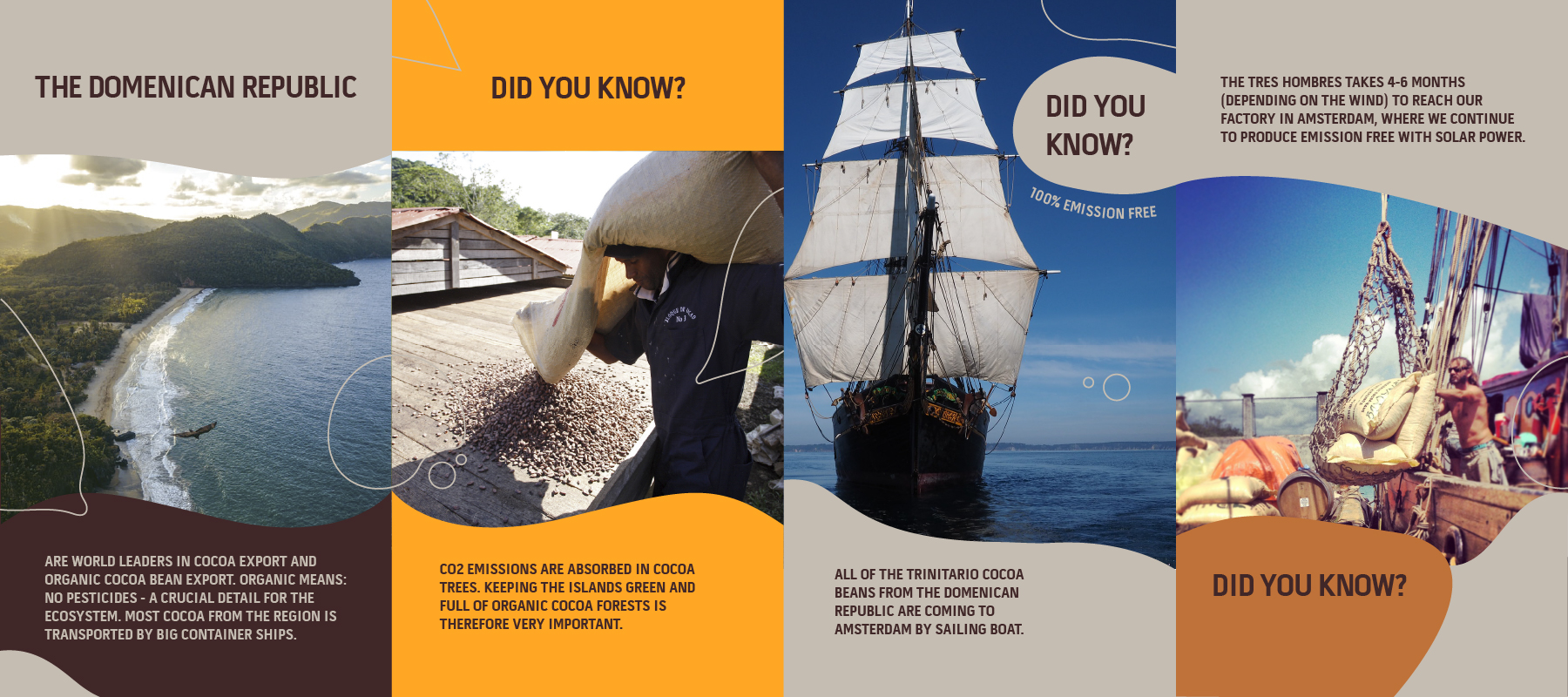

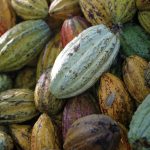
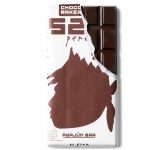
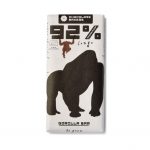



 This weekend they are at our door again!
This weekend they are at our door again!